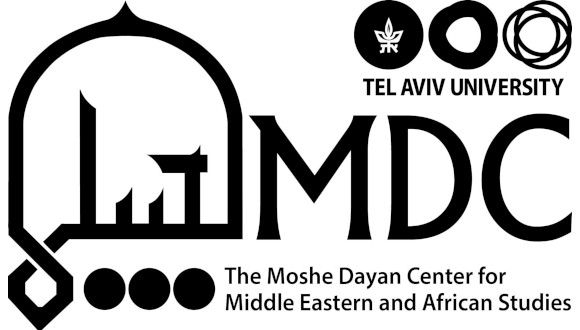Moshe Dayan Center signs Memorandum of Understanding with TRENDS Research & Advisory Center in Abu Dhabi

Cooperation will focus on mutual interest areas, such as geopolitics of the Middle East, economy, and intercultural relations
Support Tel Aviv UniversityThe Moshe Dayan Center for Middle Eastern and African Studies at Tel Aviv University (MDC) today announced the signing of a Memorandum of Understanding (MoU) with TRENDS Research and Advisory Center (TRENDS) in Abu Dhabi, U.A.E.
The agreement between MDC and TRENDS seeks to enhance academic and analytical research and cooperation between the centers in mutual interest areas, such as geopolitics of the Middle East, economy, and intercultural relations, to expand their knowledge base and to benefit from their accumulated practical and research experiences. Both MDC and TRENDS aim to jointly conduct genuine and insightful scientific research to serve their respective societies and to support policy makers. The areas of cooperation will include joint research projects, conferences, workshops, seminars and symposiums, exchange of publications, joint release of publications, and a mutual research database. The MDC is looking forward to the joint venture to bring together academics from both parties to build this bridge for a stronger and better future for us all.
Prof. Uzi Rabi, Director of the MDC, said, “We are very excited to have this opportunity and thankful for our colleagues at TRENDS with whom we will make this happen, together. This academic cooperation envisions creating a different, hopeful future for our region, creating person to person partnerships on the ground, and expanding cooperation between our two peoples.”
Dr. Mohamed Al-Ali, Director General of TRENDS Research & Advisory, said a partnership with the MDC is not just timely and promising, it also opens a world of opportunities on both sides to learn more about each other. “A region with such a large youth population must have think-tanks and researchers projecting and strategizing future trends and also coming up with robust policy recommendations,” said Dr. Al-Ali.
ABOUT MDC
The Moshe Dayan Center for Middle Eastern and African Studies is the leading Israeli think tank based in Tel Aviv, Israel, focused on the contemporary study and analysis of the Middle East and Africa. Its primary mission is to serve as a resource for decision makers and the public at large, both in Israel and internationally, though it differentiates itself from other similar organizations by refraining from recommending specific policies outright.
The Moshe Dayan Center’s team of over thirty researchers comes from a variety of backgrounds and disciplines, and collectively possesses a command of English, Hebrew, Arabic, Turkish, Kurdish, and Persian. In the wake of the 2011 “Arab Spring,” and the effective collapse of many Middle Eastern states, the Center has been active in developing new interpretive frameworks for understanding the region’s complex dynamics.
ABOUT TRENDS
TRENDS Research & Advisory is headed by Dr. Mohamed Abdullah Al-Ali, Director General. It analyzes opportunities and challenges at geopolitical, economic, and cognitive levels. The Center conducts research and engages in a constant endeavor to find scientific and objective answers to the global trends in a way that enhances the understanding of all its dimensions. TRENDS seeks to comprehend the impact of the issues facing the world, considering the different aspects of analyses, and following the international standards set for scientific research.
The Center seeks to build a network of robust partnerships with global research centers, governments, and non-government organizations, and institutions. It aims to benefit from international research experiences to enhance its academic performance at the regional and global levels. It organizes lectures, conferences, and symposia to ensure the exchange of research experiences and expertise regularly. TRENDS’ broad array of publications cover subjects of global interest and consequence.